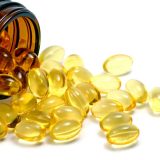Although heart disease is the leading cause of death in the United States, it is also one of the most preventable serious health conditions. With physicians finally suggesting nutritional choices over prescribing medicines, the influence of diet over heart health is staggering. As such, many with heart disease are being told that vegetarianism can improve their health. Consequently, those hoping to reduce their cardiovascular risk are showing renewed interest in eliminating meat from their diet. If you are considering the major shift from being a meat-eater to a vegetarian, make sure you have an understanding of your body’s nutritional needs.
Types of Vegetarian Diets
When it comes to being a vegetarian, one size does not fit all. There can be many differences in the food consumed between individuals who eat a vegetarian diet. The following guide is intended to differentiate between the different types of vegetarians:
- Vegan – Meat, fish, poultry, eggs, dairy products and honey are eliminated from the diet.
- Lacto Vegetarian – Meat, fish, poultry and eggs are eliminated, but dairy products are included.
- Ovo Vegetarian – Meat, fish, poultry and dairy products are eliminated, but eggs are included.
- Lacto-ovo Vegetarian – Meat, fish and poultry are eliminated, but dairy products and eggs are included.
- Pescetarian – Meat and poultry are eliminated, but fish is included.
- Pollo Vegetarian – Meat and fish are eliminated, but poultry is included.
- Semi-vegetarian – Meat is eliminated, but fish and poultry are included.
The Heart Health Advantage
As a general rule, most vegetarian diets are low in or devoid of animal products and, consequently, they are lower than non-vegetarian diets in total fat, saturated fat and cholesterol – factors known to worsen heart disease risk. Accordingly, many studies have demonstrated that vegetarians have lower:
- Risk of death from ischemic heart disease
- Low-density lipoprotein cholesterol levels (the bad cholesterol)
- Blood pressure
- Rates of hypertension
- Risk of type 2 diabetes
While vegetarian diets can be healthful and nutritionally sound if they’re carefully planned, non-vegetarian diets can be as well. Heart disease is not caused by meat directly, but rather by the fat that it can contribute to your diet. Found in vegetarian and non-vegetarian fare, the primary dietary culprit in heart disease is saturated fat. Anyone who consumes great quantities of saturated fat is at greater risk of heart disease, whether it is a vegetarian who consumes lots of full fat dairy products and eggs or a non-vegetarian who regularly indulges in well-marbled beef and organ meats.
Well-Planned Diet
There are many reasons a person might wish to be a vegetarian or a non-vegetarian. However, maintaining heart health through food can be accomplished regardless of which choice you make. Staying healthy can be achieved with or without meat, as long as nutritional needs are met and low-fat selections are made.
In order to be healthy, vegetarians must make sure they get enough:
- Vitamin B12 – Although this vitamin is naturally present only in animal foods, Vitamin B12 is often added to fortified grains and cereals.
- Iron – Since the body is less efficient at absorbing iron from vegetable sources than red meat, vegetarians must make sure they get enough by combining veggies high in iron (beets and spinach) with Vitamin-C containing foods (cabbage and citrus) to enhance iron absorption.
- Protein – Vital for good health, protein is abundant in meat. Vegetarians must make sure they consume enough protein from sources such as whole grains, legumes, seeds, nuts or soy protein.
In order to be healthy, non-vegetarians must make sure to:
- Go Lean – Consume the leanest cuts of meat and remove all fat before cooking. Some of the meats lowest in fat and cholesterol are roasted light meat turkey without the skin, light meat chicken without the skin, roasted pork tenderloin and eye of round beef.
- Consume Fish – Most cold water fish contain Omega-3 fatty acids, which protect the heart via its anti-inflammatory, anti-thrombotic, and anti-arrhythmic properties.
- Fruit and Veggies – Full of fiber, vitamins, minerals and antioxidants, do not miss out on the endless health benefits of a diet rich in fruit and vegetables.
While a vegetarian diet is one lifestyle change that can reduce your cardiovascular risk, it is no guarantee that you will avoid heart disease. Similarly, a non-vegetarian diet can foster or inhibit heart health. Regardless of whether you choose to be vegan, a pescatarian or a meat-eater, well-planned meals represent the most important part of consuming a heart healthy diet.




